(Toulon, 1783 –Paris, 1855)
Portrait of Mademoiselle Mante (1799-1849), from the Comédie-Française
Oil on canvas (Vallé and Bourniche, successors of Belot, rue de l'Arbre Sec No. 3)
H. 81 cm; L. 65cm
1826-1827
Exhibition: Paris Salon of 1827, under number 518, titled Portrait of Miss M.
Louise-Charlotte-Théophile-Delphine Escoffié, known as Mademoiselle Mante, entered the Comédie-Française in 1822 thanks to protection of Talma, and was a member there from 1823 until his death. Rival of the famous Mademoiselle Mars, with whom she played in a performance of Les Femmes savantes in 1822, the Comédie-Française website describes her as a "distinguished and spiritual woman, musician and painter in her spare time". He was sometimes criticized for his diction and his acting being a little too exaggerated. The actress is here advantageously represented at the height of her beauty and charm, just before she begins to take on a little color. The pearly nature of the nails, the transparency of the muslin, the shine of the hair, the softness of the eyes, the delicacy of the flowers, as well as the harmoniously colored palette and the smooth work of the brushstrokes, among others, make this painting a real masterpiece of work of female portraiture in the Restoration period. The author, Paulin Guérin (no relation to the miniaturist Jean-Urbain Guérin or Pierre-Narcisse Guérin) was also at the peak of his career in 1827. It was the year when he exhibited the most paintings at the Salon: nine portraits (including those of King Charles at the Universal Exhibition of 1855). Born in Toulon, but having grown up in Marseille, the young Jean-Baptiste Paulin did his local apprenticeship in drawing, for which he showed gifts, and in locksmithing, his father's trade. He went to Paris in 1802, and frequented the workshop of François-André Vincent and especially that of Baron Gérard, whose influence is clearly visible in our portrait. Quite quickly, in 1810, he began to exhibit at the Salon, dividing his submissions between portraits and historical, mythological or religious paintings; his works particularly attracted the attention of Vivant-Denon, who entrusted him with the decoration of a ceiling in the Tuileries. Under the Restoration, alongside a lucrative activity as a restorer of paintings at Versailles, his friend the Count of Forbin, director of the royal museums, allowed Paulin Guérin to meet important personalities whose portraits he painted: marshals, politicians, the Duchess of Berry..., and even King Louis XVIII, who took a liking to him and awarded him the Legion of Honor in 1822. From then on, our artist regularly received awards and appointments, such as the position of director of studies of drawing and painting at the Education House of the Legion of Honor of Saint-Denis in 1828. Supreme artistic and honorary consecration, his former master Gérard, some time before dying, repeated that it was through him alone that he would have liked to be painted.









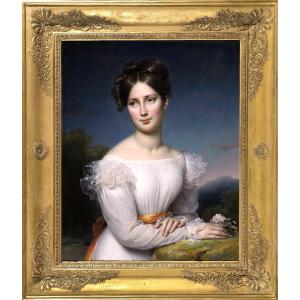














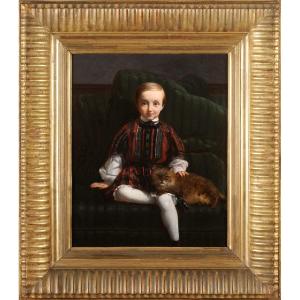

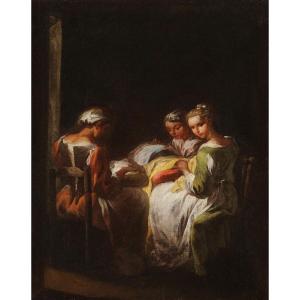




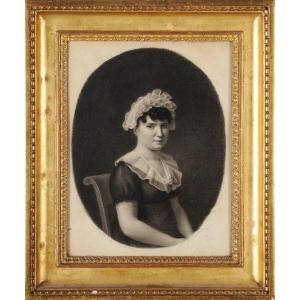



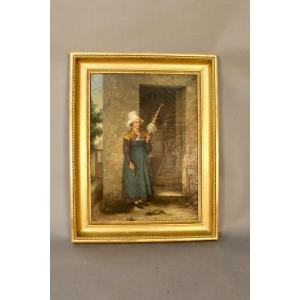




 Le Magazine de PROANTIC
Le Magazine de PROANTIC TRÉSORS Magazine
TRÉSORS Magazine Rivista Artiquariato
Rivista Artiquariato